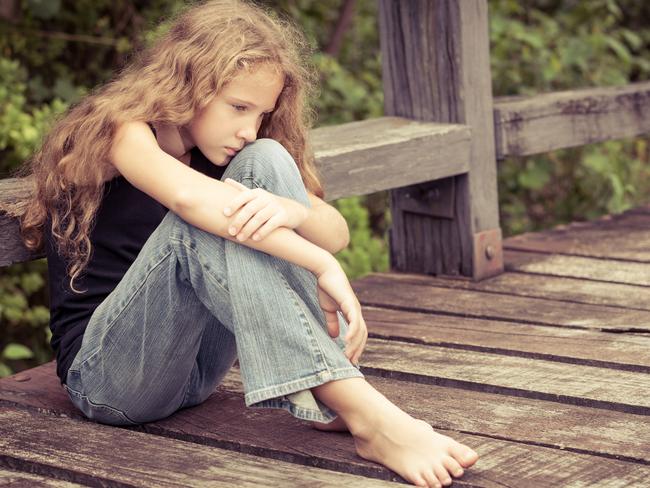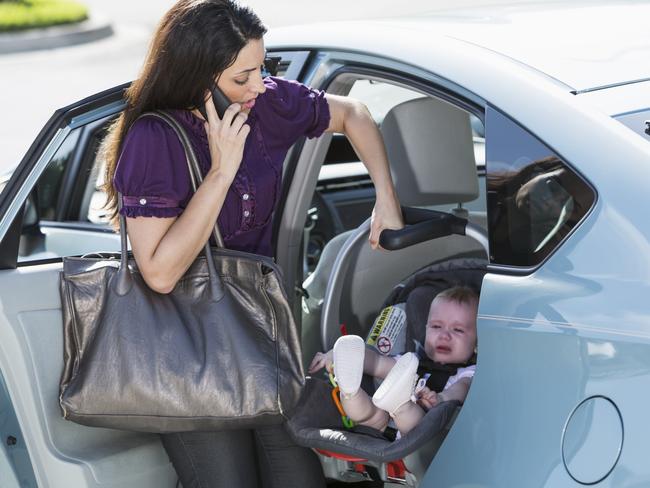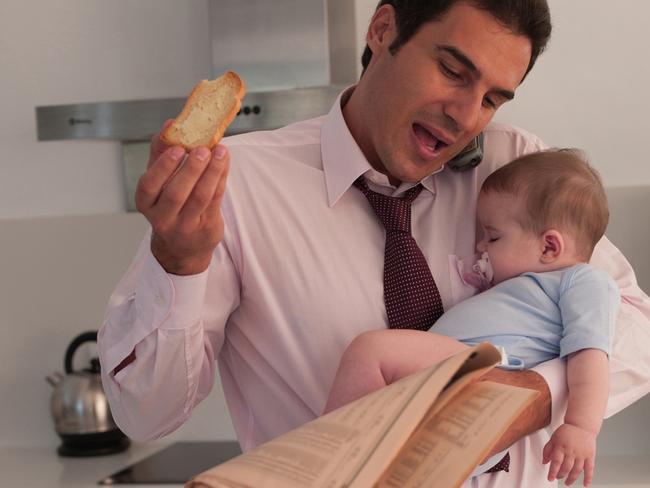Parents with demanding jobs are risking their children’s mental health, study finds
A HIGH-STRESS job and poor work-life balance could be impacting your kids’ mental health, according to a new study.
Illness
Don't miss out on the headlines from Illness. Followed categories will be added to My News.
PARENTS with demanding jobs are risking the mental health of their children, a new study has found.
One of the first studies to show that a parent’s work-life imbalance affected their children’s mental health has proven if parents are subjected to work stress their children are also at high risk of becoming withdrawn and suffering anxiety.
Researchers from the Australian National University and La Trobe University in Melbourne observed around 2500 working couples and their children aged from four years over a period of 10 years.

They found children were at the highest risk of mental health issues when both parents experienced conflict between their job and family time.
Six out of 10 working couples had at some time struggled to manage work and family commitments and one in seven experienced prolonged periods when one parent was not managing these commitments well.
Lead researcher Huong Dinh said some children had expressed physical manifestations of their mental anguish and generally a parent’s hectic work schedule would impact them within two years.
“Some even suffered headaches and stomach aches due to their worries. While others had anger issues,” Dr Dinh said.
Lyndall Strazdins from the ANU Research School of Population Health said if parents were checking their emails after work, working longer hours or were unable to have flexibility with young children their stress spilt over to the family.
“All parents are doing their best but when they are under enormous stress at work that impacts their mental health which in turn means they have a shorter fuse to deal with their children,” she said.

Professor Strazdins said the poor mental health suffered by children as a result of parental work stress could be reversed, but that it did leave a lasting impact.
“It’s positive to see that there is a big change in kids whose parents took less demanding roles. There is still a discernible difference between the children from families who had not experienced a stressful period, but the mental anguish is much smaller.”
The study will today be published in the international journal Social Science & Medicine.
Former Australian of The Year and youth mental health expert Patrick McGorry said the results were not surprising.
“This shows the financial pressure people are under these days for both parents to work. Kids need their parents to be in good mental health and employers have a responsibility to ensure that,” Professor McGorry said.
Executive director of The Parenthood Jo Briskey said the research should act as a “wake up call” for employers.
“We need to see a real shift in workplace culture in this country that much more family friendly and supports the careers of both men and women,” Ms Briskey said.
Jodi Geddes from women’s employment support network Circle In said work-life balance was never achievable.

“We think achieving work life balance is not actually realistic and we should strive for work life harmony instead,” she said.
“It’s actually about making trade-offs and choosing to focus on the things that are the most important to you, your career and your family.”
CASE STUDY
Ashely Conde, 30, knows what it’s like to juggle work and family.
The secondary school teacher from Sydney’s northern beaches is mum to Erin, 3, and Jason, 4 months.
After giving birth to Erin, Mrs Conde changed employers to be able to get the work-life balance right.
“My previous employer wasn’t able to offer me the stability in days that I wanted and I knew I would need to be able to give time to Erin,” she said.
“The kids are just too important and my happiness at work definitely flows onto the whole family.”
Mrs Conde thanks her lucky stars that she now works at a school that supports family flexibility.
“If I need to fly out the door and do pick up or go to an event at kindy I can because they know and trust me to get the work done,” she said.
Mrs Conde said being a schoolteacher she had seen the impact on children of families who didn’t have the balance right because of their employers.
“There are two children in particular that I can recall. I got the impression perhaps there wasn’t a great work life balance and the results were the kids were somewhat a little disengaged and flippant,” she said.

TOP FIVE TIPS FOR BETTER WORK-LIFE BALANCE
1. Ask for flexibility
2. Compress your week — work your five days over four
3. Switch off when not at work — try not checking emails or put an out of office on to ensure people don’t bother you when not at work
4. Structure your days to incorporate family balance where possible — maybe work after hours if you spend a few hours in the day with your kids
5. Work out what is best for your family and ask your employer how you can make that work


